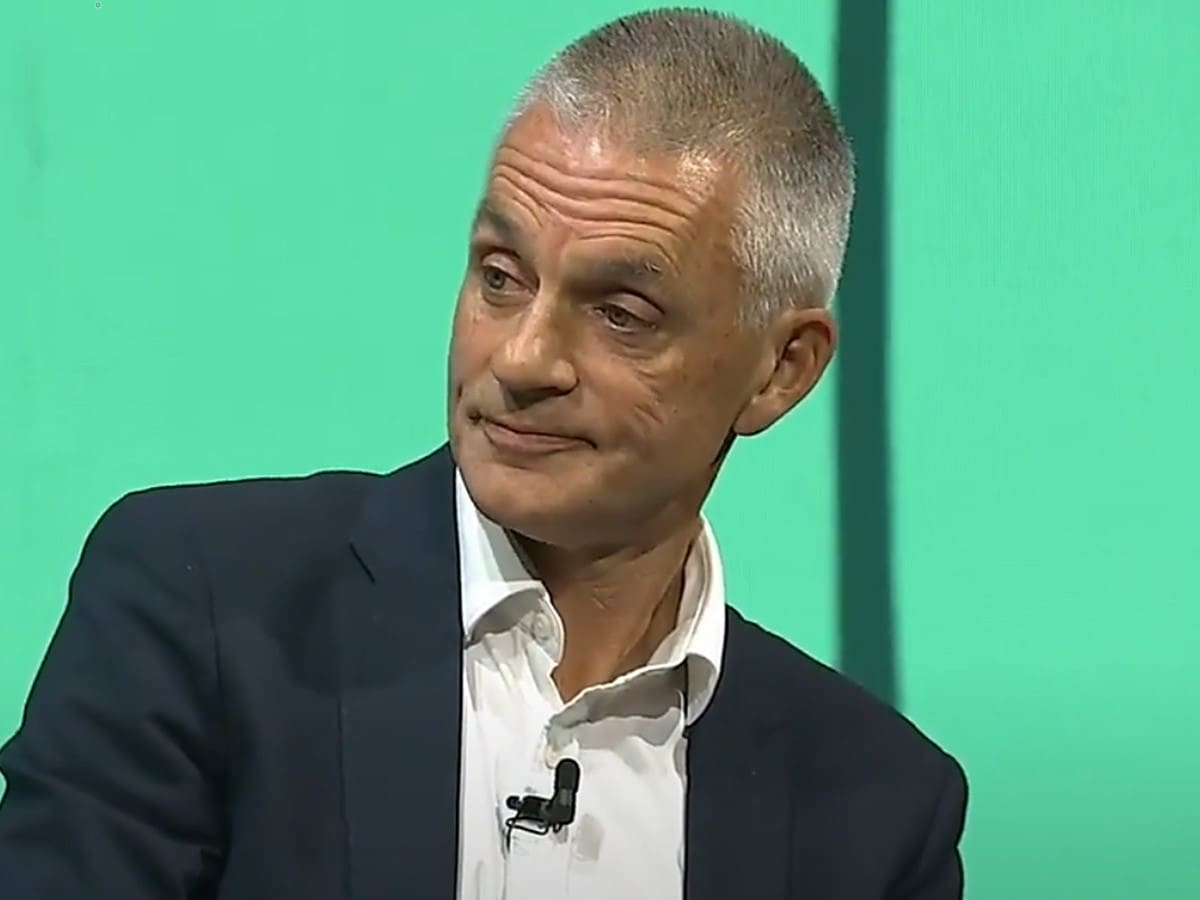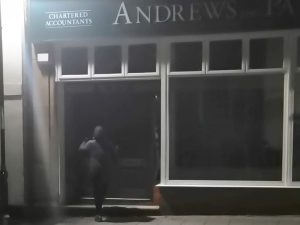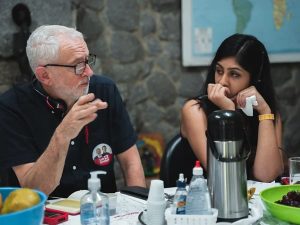BBC director-general Tim Davie has been in the news a lot this week – or rather, his corporate media colleagues have been reporting on him a lot. However, they generally skipped over a crucial admission by arch-Tory Davie – one that exposed the broadcaster’s real agenda, and also exposed himself. Because Davie effectively admitted the BBC works as an arm of government.
BBC‘s Tim Davie: licence fee blah, blah, blah…
Davie told the Royal Television Society (RTS) on Tuesday 26 March that the BBC is looking at reforming its main source of funding in the light of a government freeze and inflationary pressures.
Davie said that high inflation, increased costs, and the latest below-inflation licence fee settlement had “chipped away” at the BBC‘s income. “Significant pressure” had been put on its finances, leading to more than 1,800 job losses in the last three years, and cuts to more than 1,000 hours of content, he added.
At the same time, he said wider changes in media consumption such as streaming and on-demand services were reshaping the broadcasting market. Davie said:
This is particularly problematic as a strong balance sheet and the ability to deploy capital strategically is essential if we are to navigate digital transition. To strip money from the BBC during this period has been particularly short-sighted.
So, the BBC is planning to shake up how it does things. Davie noted:
Given the rapid changes we have seen in audience behaviour and in the media market, it is right that we look at how we are funded in the future. We will need to work more strategically with the best tech companies to cocreate solutions and form business partnerships that save money, inject capital and create better products.
Advertising and public-private partnerships, essentially. However, there was one key part of Davie’s speech which the media missed – and predictably so.
Don’t mention the ‘soft power’
He mentioned BBC World Service, which operates in 42 languages including English. It is mostly funded from the licence fee, and also receives a Foreign Office grant. Davie said of the current situation for the BBC World Service:
Not properly funding one of the UK’s most valuable soft power assets makes no sense economically or culturally.
So, Davie admits BBC World Service is a ‘soft power asset’ for the UK. But what exactly does that mean?
Joseph S. Nye, Jr coined the term “soft power” in the 1980s. In that instance he was referring to, as Foreign Affairs wrote:
the ability of a country to persuade others to do what it wants without force or coercion
That is – you ‘persuade’ people to come round to your way of thinking about, or doing, things. Now, proponents of soft power would argue that it’s not primarily a tool of government, but of society more broadly.
That’s demonstrable nonsense, for starters – because if soft power was at all our disposals then the UK would have told Israel to stop bombing Gaza months ago, as per public opinion polling. So, we’re back to the reality being that it is the government and civil service that drives the soft power agenda.
Ergo – the BBC falls into line with this.
BBC causing dissent in North Korea?
For example, in November 2016 the BBC announced that it was launching radio services in North Korea. According to then-BBC director general Tony Hall, the secretive state would receive “independent, impartial journalism and world-class entertainment”.
But the money for the BBC expansion into North Korea didn’t come from the licence fee. It came from direct funding from the UK government itself; which gave the broadcaster an additional £289m after a BBC report warned that:
If the UK wants the BBC to remain valued and respected, an ambassador of Britain’s values and an agent of soft power in the world, then the BBC is going to have to commit to growing the World Service and the government will have to recognise this.
Let’s be clear: the UK government gave the BBC money to push Western propaganda in North Korea (probably with the goal of attempting to destabilise the country). This core point can be manipulated with semantics around ‘soft power’ and ‘impartiality’ as much as the BBC wants – but it IS the core point, here.
Anti-Russia propaganda dressed up as the ‘truth’
Of course, the UK government has done this with Russia as well. As PRWeek reported, in 2017 the Foreign Office spent £14m on “supporting public service and independent media operating in the Russian language, including projects in the Baltic States, Ukraine, Moldova, and Georgia”. It said that:
the FCO is working with the EU and the international community to restrict the Kremlin’s ability to use disinformation and propaganda, as it has done during its occupation of Crimea and destabilisation of Ukraine.
Yup, so instead of Russia pushing its disinformation and propaganda – the UK will push its. But only by using ‘soft power’, right? Oddly, this was of course all before Russia invaded Ukraine.
So, Davie bleating that the BBC needs more cash because it’s a “soft power asset” is like catnip for the government. As per North Korea in 2016, it’s likely the government will fill the BBC World Service‘s coffers once more.
BBC: once a government agent, always a government agent
Of course, the BBC more broadly being an arm of the state is also glaringly obvious to anyone with half an eye open. For example, during the coronavirus (Covid-19) pandemic, the BBC was essentially on a wartime footing. It was pumping out pro-government narratives without question; at times even questioning the facts from a Tory perspective. This was not much different to the BBC‘s role in WWII.
It’s also the same agenda that led it to it being directly involved in espionage during the 1953 Iranian coup. It’s the same MO that led Andrew Marr to stand outside Downing Street at the end of the Iraq invasion in 2003 and say:
it would be entirely ungracious, even for [Tony Blair’s] critics, not to acknowledge that tonight he stands as a larger man and a stronger prime minister as a result.
Damningly, it’s the same agenda that has seen the BBC repeatedly whitewash Israel’s war crimes and genocide since 7 October – while treating Palestinians as underclass citizens.
And so here we are, in 2024 – and still the BBC is begging the government for money because it knows it’s a soft power asset for it and Western, capitalist agendas more broadly. Hey, at least Davie had the mettle to half-say it with his chest.
Never mind how the BBC should fund itself – it’s high time we all stopped funding the BBC.
Additional reporting via Agence France-Presse
Featured image via the RTS – YouTube




